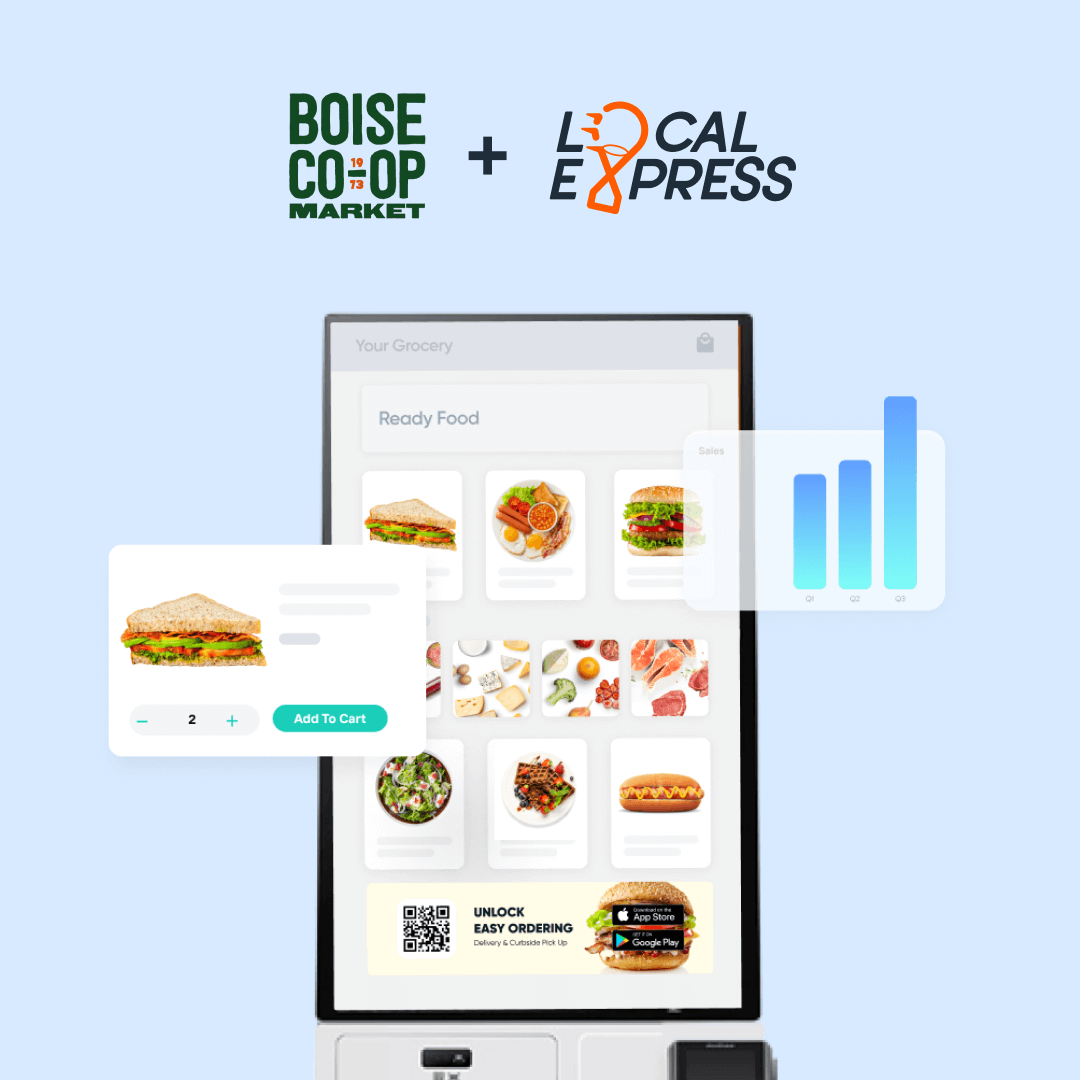


Boise Co-op, established in 1973, has grown into a vibrant community-driven cooperative with over 32,000 members dedicated to offering healthy, nutritious food. As the co-op expanded to four locations throughout Treasure Valley, they faced the challenge of managing increased customer flow. At the same time, they aimed to enhance the shopping experience while maintaining their commitment to sustainability and community engagement. The need to increase operational efficiency and sales without compromising on customer service or their cooperative values was paramount.
“Since adding the kiosks, we’ve seen about a 20–25% increase in orders overall. Customers can get through their orders much faster now. Right now for every four kiosk orders one comes through the desk. Once we wrap up a few of our bigger projects, we’d be open to moving ahead with what you’re offering for the pet shop and wine store. You’ve been stable, and we appreciate that.”
Boise Co-op
Boise Co-op integrated Local Express Kiosks into their stores, a move that brought significant technological advancements to their business operations. As a result, this digital transformation allowed them to cater to the modern consumer’s preference for speed and convenience without sacrificing the quality of service.

The introduction of self-ordering kiosks revolutionized the way Boise Co-op handled transactions. Customers could effortlessly browse products, make selections, and finalize purchases without waiting in line. This not only streamlined the shopping process but also allowed employees to focus on customer service rather than transaction handling.
The implementation of Local Express Kiosks led to a remarkable 25% increase in sales in the Deli department. The kiosks contributed to this surge by reducing wait times and allowing the co-op to process a higher volume of orders efficiently. The data collected from these interactions also provided valuable insights into customer preferences, enabling more targeted marketing and stock adjustments.
Customer satisfaction soared as the co-op minimized wait times and maximized convenience. Consequently, feedback highlighted the ease and speed with which customers could place orders. This improvement in customer experience reinforced the co-op’s reputation as a forward-thinking, customer-centric organization.
The effectiveness of the Local Express Kiosks was measured by the volume of orders processed, showcasing a direct correlation between kiosk use and improved operational efficiency. Additionally, continuous monitoring and customer feedback have been vital in refining the system to better serve the co-op’s needs and expectations.
The strategic decision to adopt Local Express Kiosks at Boise Co-op led to substantial benefits:
• Increased Sales. The convenience and efficiency of the kiosks attracted more customers, directly boosting sales figures.
• Enhanced Customer Engagement. The ease of use and reduced wait times enhanced the overall customer experience, promoting loyalty and frequent visits.
• Operational Efficiency. With streamlined operations, the co-op could allocate resources more effectively, focusing on quality service and community engagement.
• Community Impact. By maintaining high standards for product selection and emphasizing local and sustainable products, the co-op reinforced its commitment to having a positive impact on the community.
Boise Co-op’s incorporation of Local Express Kiosks shows how traditional cooperatives can embrace modern technology. This enhances customer service, increases sales, and maintains core values. This case study demonstrates the potential for digital tools to transform business operations. It supports community-oriented goals and sustainable practices. By continuing to innovate and adapt, Boise Co-op ensures it remains a cherished institution in Treasure Valley. It is well-equipped to serve its community for many more years.

